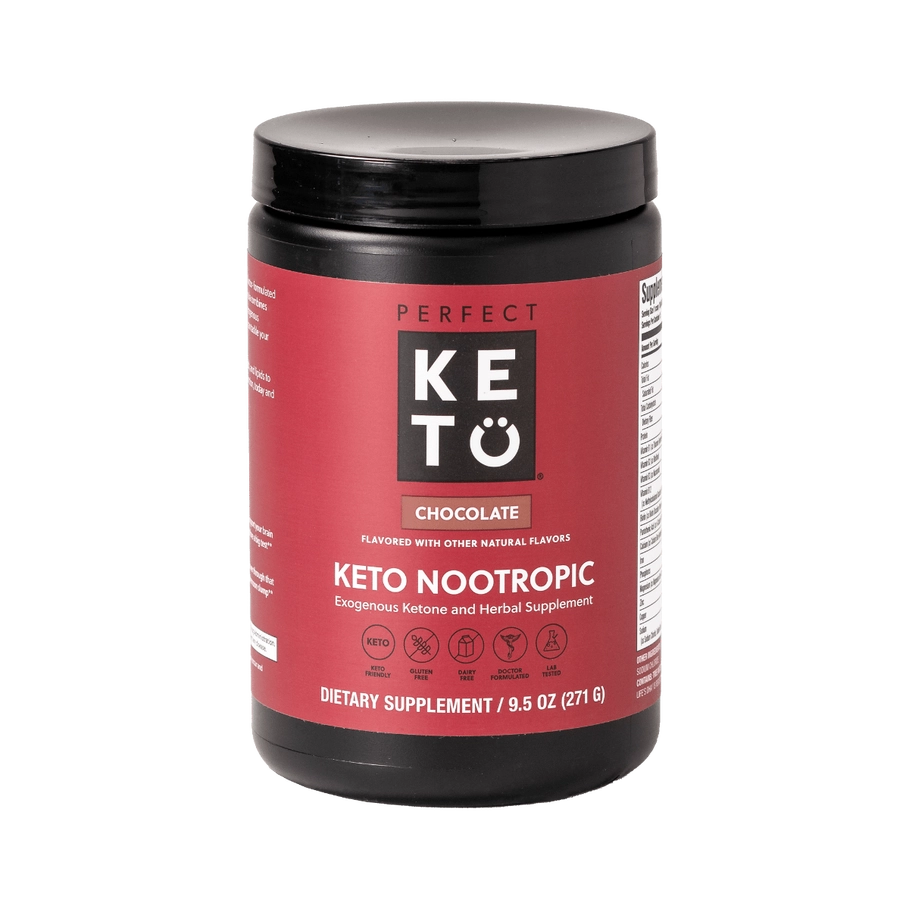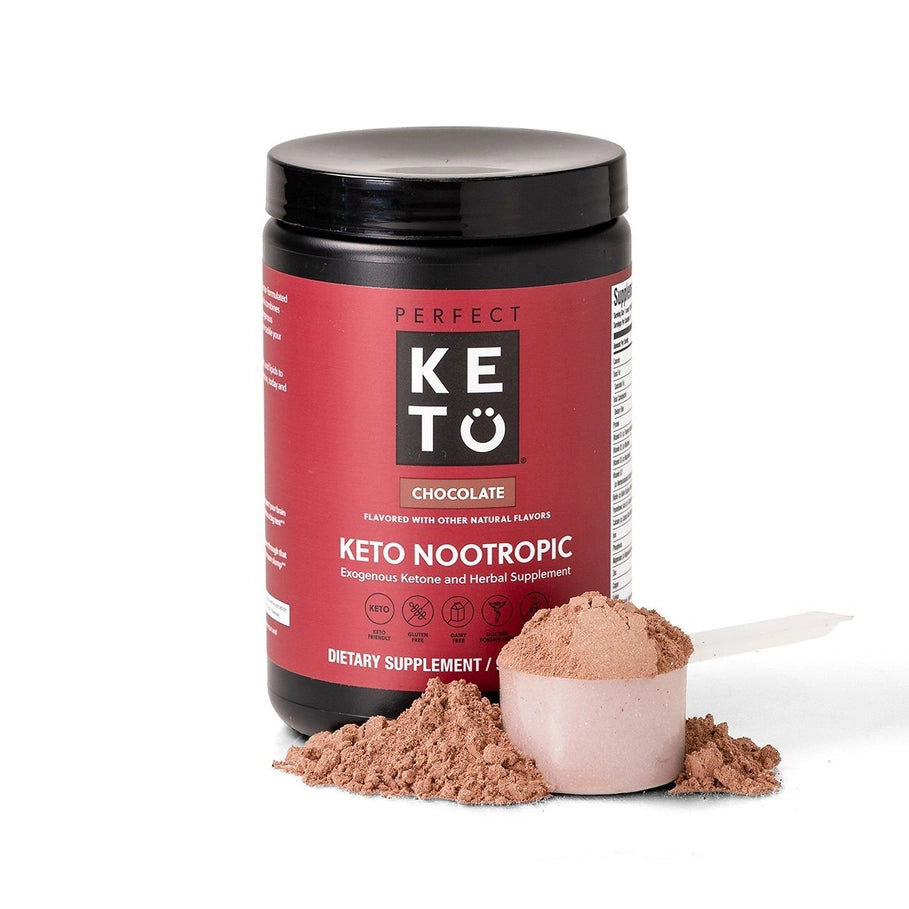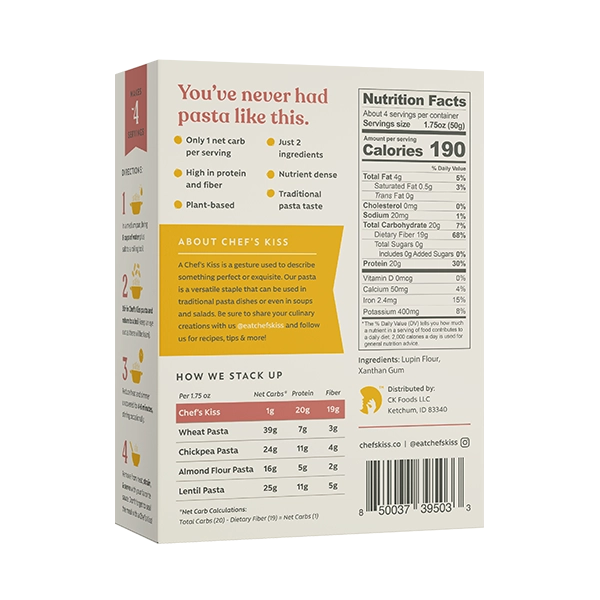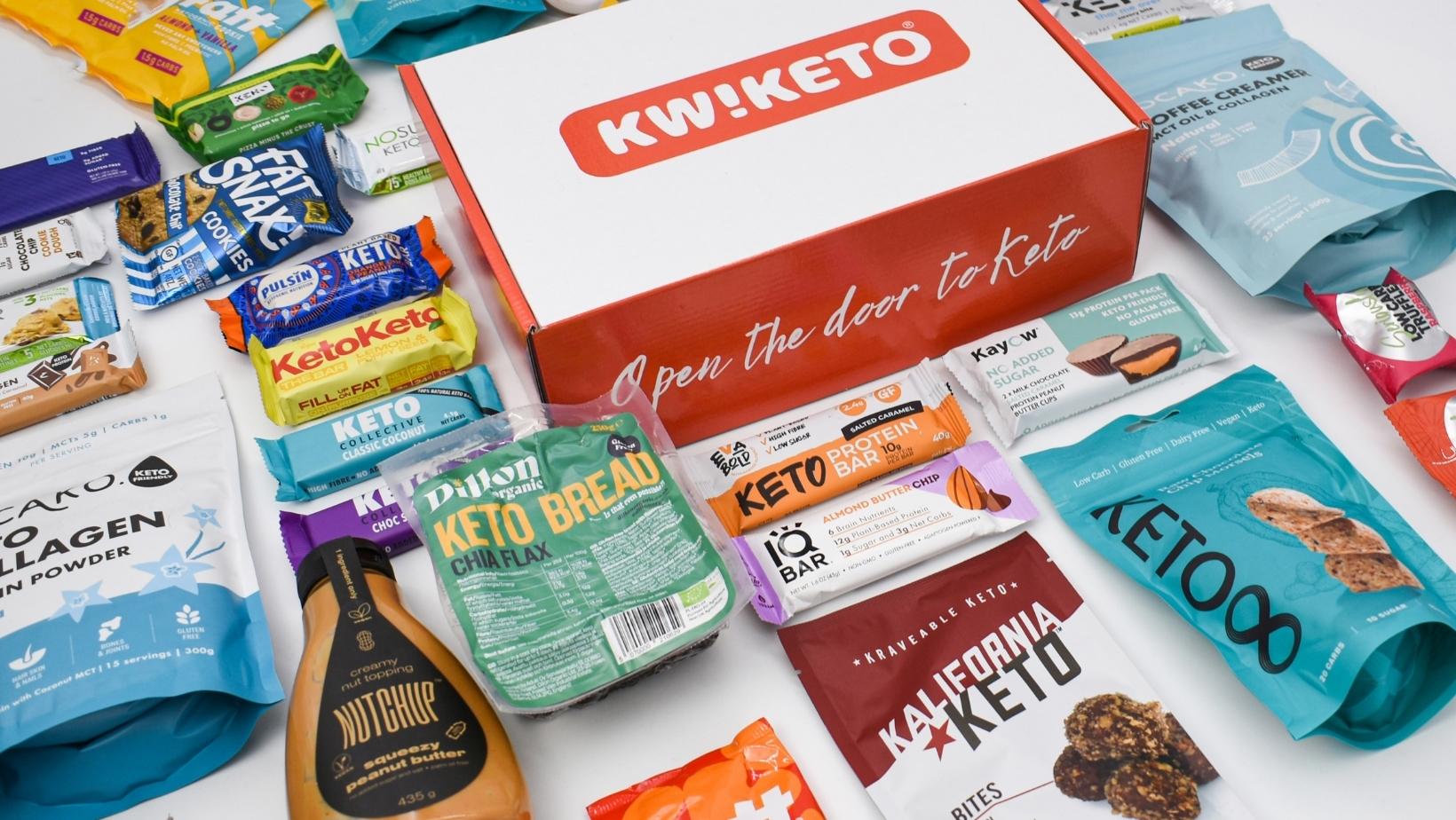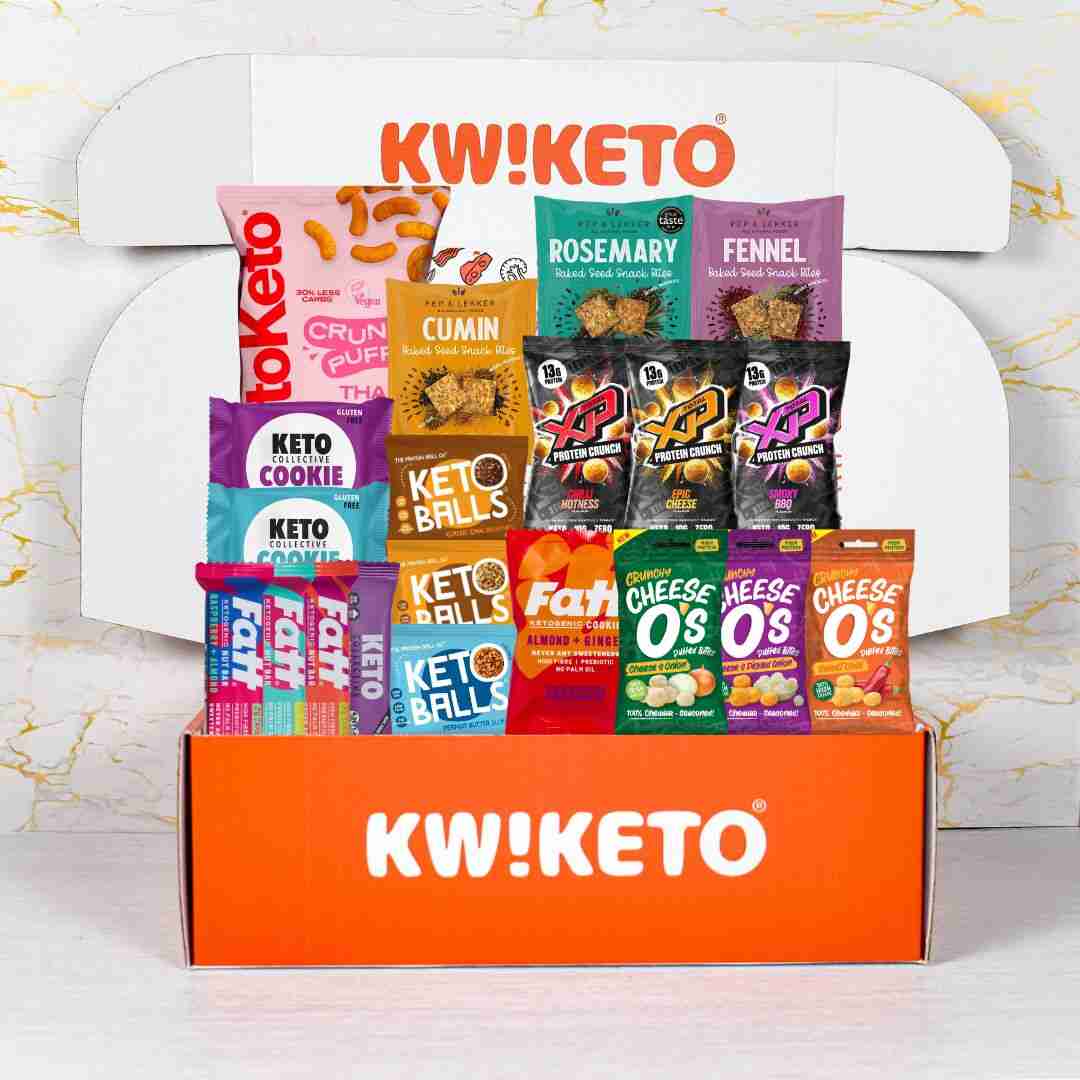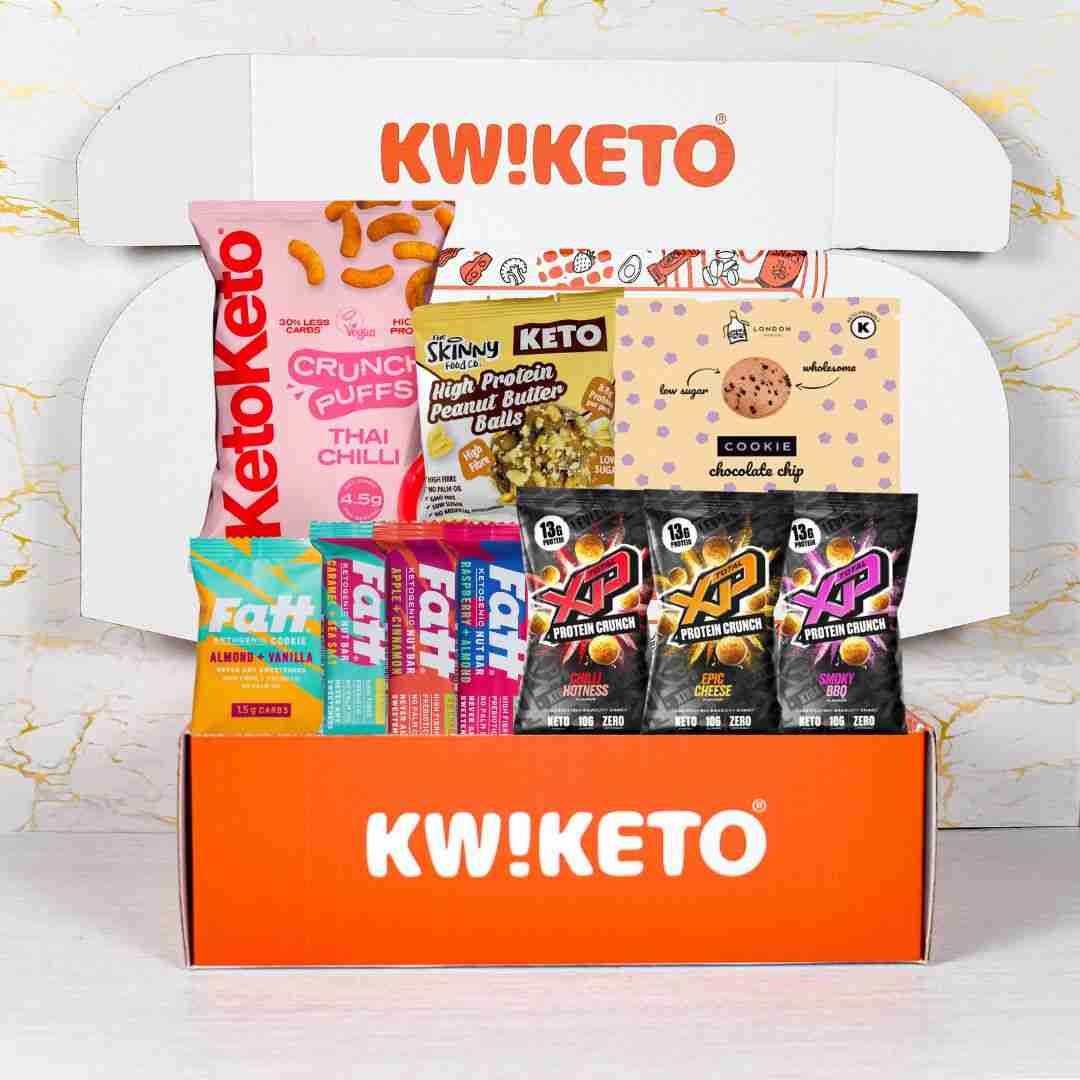
Understanding Net Carbs & Total Carbs: Key Insights for Keto Success
Demystifying Net Carbs vs Total Carbs: The Keto Conundrum Unraveled
In the realm of ketogenic diets, understanding the intricate dance between net carbs and total carbs is paramount. As you embark on this low-carb, high-fat journey, arming yourself with knowledge about these two carbohydrate measurements can be the key to unlocking sustained success. Brace yourself as we delve into the nuances, unveil the hidden truths, and equip you with invaluable insights to navigate the keto landscape like a seasoned pro.
The Carb Conundrum: What's the Difference?
At the heart of this enigma lies the fundamental distinction between net carbs and total carbs. Total carbs, as the name implies, encompass the entirety of carbohydrates present in a food item, be they simple sugars, complex starches, or the oft-overlooked dietary fiber. Conversely, net carbs represent the digestible portion of carbohydrates that can be readily absorbed and metabolized by the body, excluding the indigestible components like fiber and certain sugar alcohols.
Unveiling the Net Carb Calculation
Deciphering the net carb count is akin to solving a culinary riddle. The formula is deceptively simple: subtract the grams of fiber and a portion of sugar alcohols from the total carbohydrate content listed on the nutrition label. However, the devil lies in the details, as different sugar alcohols are metabolized at varying rates, necessitating a keen eye for the fine print.
For instance, while erythritol is generally considered a free pass, other sugar alcohols like xylitol and maltitol may contribute a fraction of their weight to the net carb tally. The precise calculation goes like this:
Net carbs = total carbs - (fiber + half the sugar alcohols, excluding erythritol).
The Keto Conundrum: To Count or Not to Count?
As the ketogenic diet gains momentum, a heated debate rages on: should one prioritize net carbs or total carbs? Proponents of the net carb camp argue that this metric offers a more accurate representation of the carbohydrates that genuinely impact blood sugar levels and potentially disrupt ketosis. By excluding fiber and certain sugar alcohols, they contend, one can enjoy a broader array of nutrient-dense, low-net-carb foods while adhering to the diet's stringent guidelines.
Conversely, skeptics caution against the pitfalls of relying solely on net carbs. They assert that the body's response to fiber and sugar alcohols can vary greatly among individuals, rendering the net carb calculation an oversimplification. Furthermore, they raise concerns about the potential for overconsumption of processed, fiber-fortified foods that may boast deceptively low net carb counts.
The Whole Truth: Embracing a Holistic Approach
As with most dietary debates, the answer may lie somewhere in the middle, a delicate balance between extremes. While acknowledging the merits of net carb tracking, many experts advocate for a more holistic approach that considers the overall nutritional profile and quality of the foods consumed.
Instead of getting mired in the minutiae of carb counting, they encourage a focus on whole, nutrient-dense foods that are naturally low in carbohydrates, such as non-starchy vegetables, healthy fats, and lean proteins.
By prioritizing these whole food sources, one can reap the benefits of fiber, antioxidants, and essential nutrients while minimizing the risk of overconsumption or nutrient deficiencies.
Navigating the Keto Landscape: A Practical Guide
To thrive on the ketogenic diet, it's crucial to understand the nuances of both net carbs and total carbs. Here's a practical guide to help you navigate this intricate terrain:
Step 1: Establish Your Carb Threshold
Determine your personal carbohydrate limit based on your goals, activity level, and individual metabolism. For most individuals following a ketogenic diet, this range typically falls between 20 and 50 grams of net carbs per day. However, it's essential to experiment and adjust this threshold based on your body's unique response.
Step 2: Prioritize Whole, Nutrient-Dense Foods
Build your keto-friendly meal plan around whole, unprocessed foods that are naturally low in carbohydrates. Focus on leafy greens, cruciferous vegetables, avocados, nuts, seeds, and high-quality proteins like grass-fed meats, wild-caught fish, and pastured eggs.
Step 3: Read Labels Diligently
When incorporating packaged foods into your diet, scrutinize the nutrition labels meticulously. Pay close attention to both the total carb count and the fiber and sugar alcohol content to calculate the net carbs accurately.
Step 4: Experiment with Moderation
While adhering to your carbohydrate threshold, periodically introduce low-net-carb treats or indulgences in moderation. This practice can help you identify potential stalls or adverse reactions, allowing you to fine-tune your approach and maintain a sustainable, enjoyable lifestyle.
Step 5: Monitor and Adjust
Regularly assess your progress, energy levels, and overall well-being. If you experience sluggishness, cravings, or stalls in weight loss or other health markers, consider adjusting your carbohydrate intake or re-evaluating your food choices. The ketogenic diet is a highly individualized journey, and flexibility is key.
Beyond the Numbers: The Bigger Picture
While the net carbs versus total carbs debate may seem like a mere numbers game, it represents a broader philosophical question: Should we fixate on the minutiae of macronutrient ratios, or should we embrace a more holistic, intuitive approach to eating?
Ultimately, the answer lies in striking a balance between data-driven precision and mindful, intuitive eating. By understanding the nuances of carbohydrate measurements and employing them as tools rather than rigid rules, you can embark on a ketogenic journey that is sustainable, enjoyable, and tailored to your unique needs and preferences.
The Keto Advantage: Potential Benefits Unveiled
Embarking on the ketogenic path promises a myriad of potential benefits that extend far beyond mere weight loss. By inducing a metabolic state known as ketosis, where the body shifts from burning glucose to utilizing ketones derived from fat as its primary fuel source, individuals may experience:
- Enhanced mental clarity and focus
- Improved blood sugar regulation
- Reduced inflammation
- Increased satiety and appetite control
- Potential therapeutic application for certain neurological conditions
However, it's crucial to approach the ketogenic diet with caution and under the guidance of a qualified healthcare professional, especially for those with pre-existing medical conditions or specific dietary requirements.
Keto-Friendly Foods: Building a Balanced Plate
To successfully navigate the ketogenic diet, it's essential to familiarize yourself with the array of keto-friendly foods that can be incorporated into your meals. Here's a breakdown of the nutrient-dense options that should form the foundation of your keto journey:
Proteins:
- Grass-fed meats (beef, lamb, bison)
- Poultry (chicken, turkey)
- Wild-caught fish and seafood
- Eggs
- Certain plant-based sources (tempeh, tofu, seitan)
Healthy Fats:
- Avocados and avocado oil
- Coconut oil and coconut butter
- Olive oil and olives
- Nuts and nut butters
- Seeds (chia, flax, pumpkin)
Low-Carb Vegetables:
- Leafy greens (spinach, kale, arugula)
- Cruciferous vegetables (broccoli, cauliflower, Brussels sprouts)
- Asparagus, zucchini, bell peppers
- Mushrooms, tomatoes, onions
Low-Glycemic Fruits:
- Berries (raspberries, blackberries, strawberries)
- Avocados
- Lemons and limes
Dairy and Alternatives:
- Full-fat cheese
- Heavy cream
- Unsweetened nut milk
- Coconut milk and yogurt
By crafting meals that combine these nutrient-dense, keto-friendly foods, you can ensure a well-rounded, satisfying, and sustainable approach to the ketogenic lifestyle.
Potential Challenges and Considerations
While the ketogenic diet offers numerous potential benefits, it's essential to be aware of the potential challenges and considerations that may arise along your journey:
The Keto Flu
As your body adapts to burning fat for fuel instead of glucose, you may experience a cluster of temporary symptoms collectively known as the "keto flu." These can include fatigue, headaches, brain fog, and digestive discomfort. Proper hydration, electrolyte replenishment, and patience can help mitigate these transient side effects.
Nutrient Deficiencies
Due to the restrictive nature of the ketogenic diet, there is a risk of developing nutrient deficiencies, particularly in vitamins, minerals, and fiber. Incorporating a diverse array of nutrient-dense, low-carb foods and considering supplementation under professional guidance can help address this concern.
Long-Term Sustainability
While the ketogenic diet can be an effective short-term strategy for weight loss or specific therapeutic goals, its long-term sustainability has been a subject of debate. Some individuals may find the strict carbohydrate restriction challenging to maintain over extended periods, potentially leading to burnout or yo-yo dieting patterns.
Individual Variations
It's important to recognize that every individual's response to the ketogenic diet may vary. Factors such as genetics, metabolic rate, activity levels, and underlying health conditions can all influence the effectiveness and suitability of this dietary approach.
Monitoring and Professional Guidance
To ensure a safe and successful ketogenic journey, it's highly recommended to work closely with a qualified healthcare professional, such as a registered dietitian or a knowledgeable physician. Regular monitoring of key health markers, including blood lipid profiles, kidney function, and overall well-being, is crucial for making informed adjustments and ensuring optimal results.
The Keto Lifestyle: Beyond Diet
While the ketogenic diet primarily revolves around macronutrient ratios and carbohydrate management, embracing a holistic keto lifestyle can amplify the potential benefits and promote long-term sustainability. Here are some key components to consider:
Exercise and Activity
Incorporating regular physical activity, such as strength training, cardiovascular exercise, and low-impact activities like yoga or walking, can enhance overall health, boost metabolism, and support the maintenance of lean muscle mass while in a state of ketosis.
Stress Management
Chronic stress can disrupt hormonal balance and sabotage even the most diligent dietary efforts. Incorporating stress-management techniques like meditation, deep breathing exercises, or engaging in enjoyable hobbies can support a balanced and sustainable ketogenic lifestyle.
Sleep and Recovery
Adequate sleep and rest are essential for optimal health and weight management. Prioritizing high-quality sleep and allowing for proper recovery can support hormonal balance, enhance cognitive function, and facilitate the body's natural healing processes.
Community and Support
Surrounding yourself with a supportive community of like-minded individuals can provide invaluable motivation, accountability, and a wealth of shared knowledge. Joining online forums, local support groups, or connecting with others on a similar journey can make the ketogenic lifestyle more enjoyable and sustainable.
By embracing a holistic approach that encompasses not only dietary choices but also lifestyle factors, you can unlock the full potential of the ketogenic journey and experience lasting transformations in both physical and mental well-being.
The Keto Continuum: Exploring Variations and Customizations
The ketogenic diet is not a one-size-fits-all approach; rather, it exists on a continuum, allowing for variations and customizations to suit individual needs and preferences. Here are some popular adaptations to consider:
Cyclical Ketogenic Diet (CKD)
This variation involves alternating periods of strict ketogenic eating with strategically timed carbohydrate refeeds or higher-carb days. This approach can be particularly beneficial for athletes or individuals engaged in intense physical activities, as it can help replenish glycogen stores and support performance.
Targeted Ketogenic Diet (TKD)
In this variation, individuals consume small amounts of fast-acting carbohydrates around their workout or physical activity periods. This strategy aims to provide an immediate energy boost while minimizing the disruption of ketosis during the rest of the day.
Protein-Sparing Modified Fast (PSMF)
This approach combines a very low-calorie intake with a moderate amount of protein and minimal carbohydrates and fat. It is often employed for rapid weight loss over a short period, typically under medical supervision.
Vegetarian/Vegan Keto
While the traditional ketogenic diet heavily relies on animal-based proteins and fats, it is possible to adapt it to a plant-based lifestyle. This variation requires careful planning and a thorough understanding of plant-based sources of protein, healthy fats, and micronutrients.
By exploring these variations and customizing the ketogenic approach to align with your unique goals, preferences, and lifestyle, you can increase the likelihood of long-term success and sustainability.
The Keto Toolbox: Helpful Resources and Support
Embarking on the ketogenic journey can be both exhilarating and daunting, but you don't have to navigate it alone. Embrace the wealth of resources and support systems available to enhance your experience and increase your chances of success:
Keto-Friendly Meal Delivery Services
For those with busy lifestyles or limited culinary skills, keto-friendly meal delivery services can be a game-changer. These services provide pre-portioned, delicious meals tailored to the ketogenic macronutrient ratios, eliminating the guesswork and hassle of meal planning and preparation.
Keto-Focused Cookbooks and Blogs
Expand your culinary horizons with an array of keto-friendly cookbooks and blogs that offer a wealth of recipes, meal plans, and valuable insights from seasoned keto enthusiasts. These resources can help you maintain variety, creativity, and enjoyment in your ketogenic culinary adventures.
Keto-Focused Mobile Apps and Trackers
In today's digital age, numerous mobile apps and trackers are available to simplify the process of monitoring your macronutrient intake, tracking your progress, and accessing a vast repository of keto-friendly recipes and resources.
Online Communities and Support Groups
Joining online communities and support groups dedicated to the ketogenic lifestyle can provide an invaluable source of motivation, accountability, and shared knowledge. These platforms offer a space to connect with like-minded individuals, ask questions, and exchange tips and strategies for navigating the challenges and celebrating the successes of the keto journey.
By leveraging these resources and embracing the support systems available, you can enhance your ketogenic experience, overcome obstacles with greater ease, and increase the likelihood of achieving your desired health and wellness goals.
The Keto Continuum: A Lifelong Journey
As you embark on the ketogenic path, it's essential to recognize that this is not a temporary fix or a fleeting fad; rather, it represents a profound shift in your relationship with food and your overall approach to health and well-being. Embracing the keto lifestyle as a continuum, rather than a finite destination, can foster a sustainable and rewarding journey.
Celebrate your victories, learn from your setbacks, and continuously adapt and refine your approach based on your evolving needs and preferences. Remember, the ketogenic journey is not a linear path but a dynamic exploration that requires flexibility, patience, and a willingness to embrace lifelong learning.
By maintaining an open mind, seeking guidance from qualified professionals, and surrounding yourself with a supportive community, you can navigate the complexities of net carbs, total carbs, and the myriad nuances of the ketogenic lifestyle with confidence and ease.
Ultimately, the true measure of success lies not in rigid adherence to a set of rules but in cultivating a deep understanding of your body's unique needs and fostering a harmonious relationship with the foods that nourish and sustain you. Embrace the journey, celebrate your progress, and let the insights gained from the keto conundrum guide you towards a life of vibrant health and unparalleled well-being.



